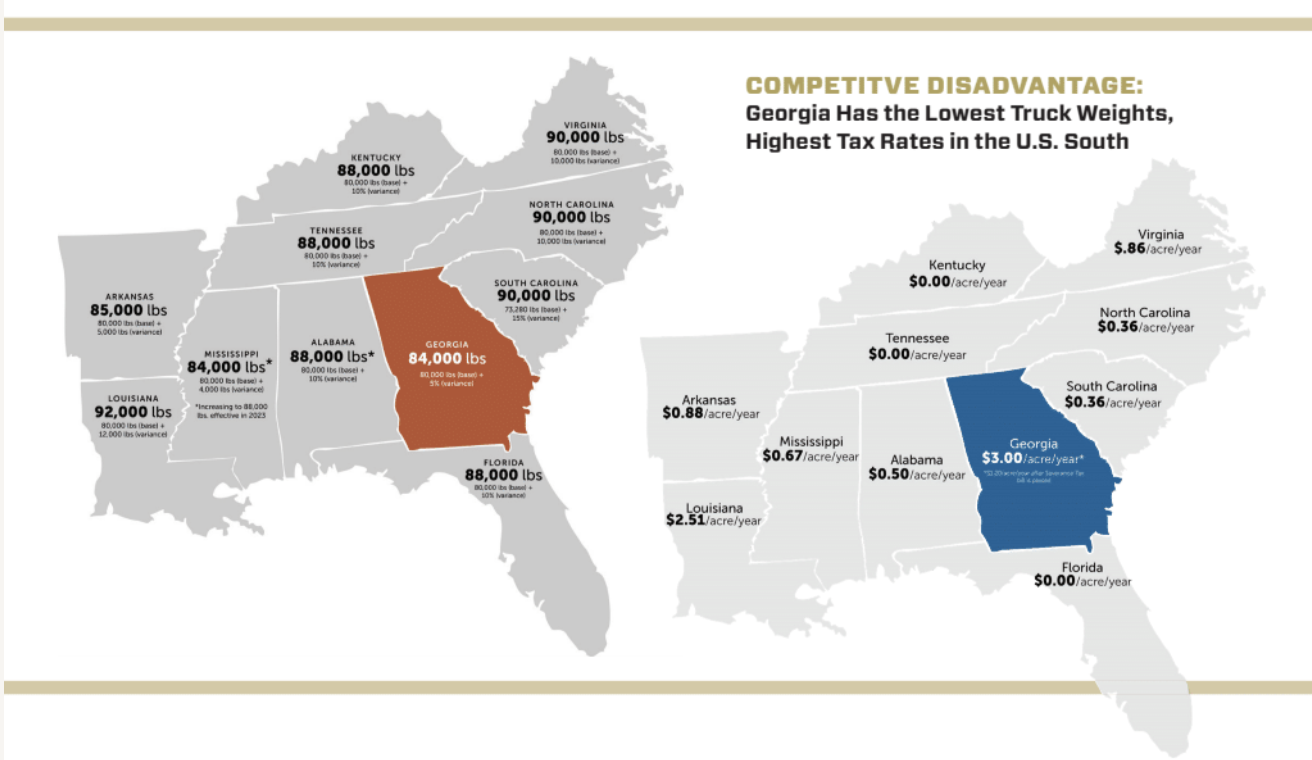Truck Weights & Harvest Taxation Top Legislative Priorities
GFA’s Advocacy Strategy Focuses on Addressing Challenges
with Economic Competitiveness
By Tim Miller and Matt Hestad
Winter 2023
Pictured: Harry Sanders was recognized as the 2022-23 Georgia Logger of the Year.
Pictured: Harry Sanders was recognized as the 2022-23 Georgia Logger of the Year.



